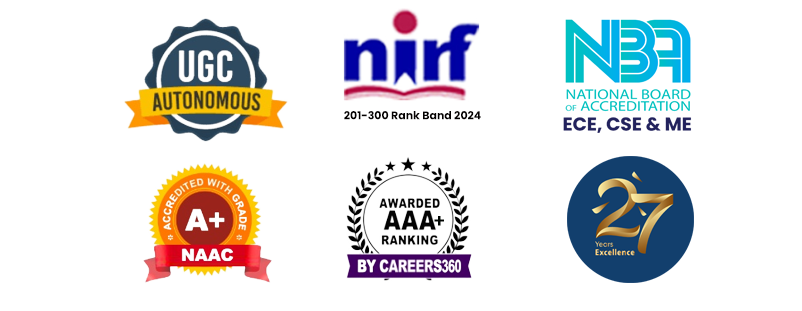VISION OF THE DEPARTMENT:
To groom MCA Department as a generator of world class Software Professionals / Entrepreneurs with Indian values.
MISSION OF THE DEPARTMENT:
The Department of MCA is committed:
- Imparting employability skills in students.
- Encourage research activities among students and staff.
Programme Educational Objectives:
The Department of Master of Computer Applications in tune with the Vision and Mission of Narsaraopeta Engineering College will be working with all commitment to offer MCA program with the objective of generating the students with global competence with Indian culture and values enabling them to face the challenges in “Information processing and Communication Technologies –ICTs of the future. The Department intends to play a key role as a gateway of knowledge in carving out a technological hub of Universal standards 0in the Palanadu Region of Andhra Pradesh.
The Programme Educational Objectives (PEOs) of the Department are:
To develop competent quality work force with adequate knowledge, skills and attitudes. On completion of their course the students will be able to:
PEO1: Apply their knowledge to solve real-world problems using Computer Apps.
PEO2: Get employment as Software Professional capable of undertaking software development matching with the current and future needs through technological innovations, and inter-disciplinary works.
PEO3: Functions effectively as individuals and in any team at the workplace demonstrating ethical behavior, quality conscious Software Professional with sensitivity to the impact of technology on society.
PEO4: Work with confidence, commitment, capabilities to grow technically, temperamentally as; highly technical professionals, project management team members and leaders etc., through their continued efforts for lifelong learning to remain up to date in their professional pursuits.
PEO5: Perform search, research and feasibility studies to develop; Project Planning Documents (PPDs), User Requirements Documents (URDs), Modules on Business Process Modeling (BPM), Software Requirements Document (SRD) etc., with awareness and adaptation of various models and to replace waterfall life cycle models by other alternatives like ‘Unified Process Model’ and ‘Agile Software Development’ with abilities to; collect, analyze, translate end user requirements in to system and software requirements, architectural design etc.
Programme Outcome:
On successful completion of the M.C.A. course, a student should be able to:
PO1: Grasp, understand and comprehend the fundamentals of Information Technology and computer-based systems enabling them to apply their learnt knowledge, skills with right attitude after critical evaluation of approaches, procedures, trade-offs, results related engineering problems and issues in ethically responsible manner for the good of the society through the developments in the current state of the art, and future issues.
PO2: Apply knowledge of Mathematics, Science, and Computer Applications.
PO3: Design and conduct experiments, as well as to analyze and interpret data.
PO4:Design a system, component, or process to meet desired needs within realistic constraints such as economic, environmental, social, political, ethical, health and safety, manufacturability and sustainability.
PO5: Function on multidisciplinary teams.
PO6: Identify, formulate, and solve real-world problems using Computer Apps.
PO7: Get an understanding of professional and ethical responsibility.
PO8: Communicate effectively.
PO9: Appreciate the broad education necessary to understand the impact of engineering solutions in a global, economic, environmental, and societal context.
PO10: Recognize the need for, and an ability to engage in life-long learning.
PO11: Possess the knowledge of contemporary issues.
PO12: Have abilities to use the techniques, skills, and modern engineering tools necessary for software engineeringpractice.
Program Specific Outcomes
PSO1: To design and develop algorithms for business and computer applications.
PSO2: To apply security mechanisms for online applications.





